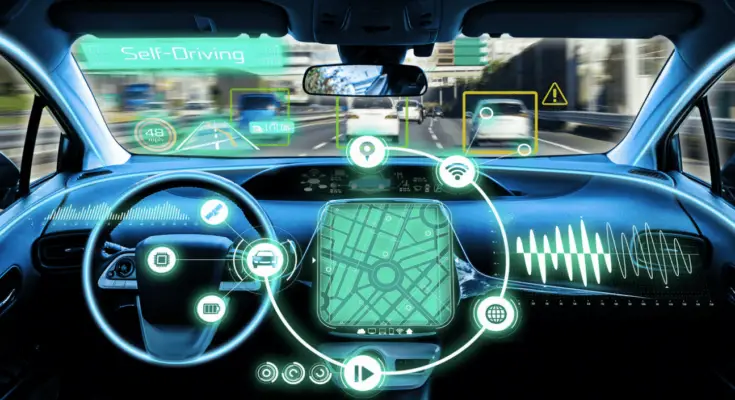Estimated reading time: 5 minutes
We understand how the advent of technology has played a major role in changing our lives. On the first impression, the word telematics does not mean a great deal to a lot of people but it is a set of state of the art technology that has revolutionized the entire logistics industry.
We will explore this ‘technology’ today to have a better understanding of its use and how it can be implemented in your business to maximize its efficiency.
What is telematics?
As stated above, telematics refers to a set of technology (like GPS fleet monitoring systems) that are used to monitor various aspects of logistics management. This can range include planning and maintaining schedules, fuel and cargo optimization, driver behavior, etc during a trip. The data is then transmitted to a telematics software for interpretation and action.
How is telematics data captured?
Generally, data from vehicles is captured by an Electonic Logging Device (ELD) and the data from here is transmitted to a central software. The ELD captures data points like duration driven, miles traveled, acceleration/braking behaviors, engine diagnostics, etc.
Other data points like fuel costs, cargo loads, vehicle cargo size and other known data can be fed into the software for optimizing certain aspects of the fleet.
How is telematics data used?
The data is generally used by businesses to obtain an accurate and deeper insight into their fleet. This allows them to plan and deploy their fleet in a more efficient manner. This helps them save not only time but also fuel which is a major expense.
Telematics data is also used to meet various statutory compliance checks. The FMSCA has taken major steps in making the roads safer, especially for commercial vehicle drivers by mandating various telematics devices. For example, an ELD is mandatory in all commercial vehicles.
Some insurance providers also provide discounted premiums if they see telematics installed in vehicles. This is done for two reasons mainly, one – telematics equipment gives the insurance company the impression that you take your fleet’s safety seriously and two – they might like to access certain data for their own business requirements like customer acquisition planning.
What should businesses consider before implementing telematics?
There are a few important points to review before investing in telematics equipment and software. Budgetary restrictions might limit many businesses from implementing an end to end telematics system. The type of vehicles that the business run, the service they provide and key issues they are looking to tackle are some of the key questions to answer before implementing certain telematics equipment.
Popular telematics solutions
The most popular telematics solution in the market is the GPS tracking system. Most of these benefits are surveillance and efficiency related which helps businesses reduce costs and increase profitability. Some major benefits of GPS tracking devices for fleet management include:
Route Optimisation
With GPS trackers installed in your fleet vehicles, you will have access to real time data on the location of each vehicle in your fleet. This will allow you to provide dynamic updates as to the ideal route each vehicle must take to avoid delays due to traffic jams, road accidents, and other unforeseen circumstances.
Minimize Fuel Costs
Fuel costs are one of the biggest expenses that businesses need to plan for. Even after thorough planning, most of the time you exceed the planned limit. GPS tracking can play a vital role in reducing unnecessary fuel consumption activities therefore saving time.
GPS tracking devices allow you to reduce the idle time a vehicle spends sitting in traffic. This is done by providing efficient routes to drivers.
Allay Theft Concerns
Sometimes when drivers on a multi-day journey and they stopover for a hiatus and sleep/rest away from the vehicle, thieves may attempt to break into the cab and steal the vehicle along with the valuable cargo. These can turn to be potentially massive losses as not only do you risk losing a working asset in the vehicle but also the cargo which may be a customer’s.
When thieves know that vehicles are equipped with GPS trackers and are being tracked round the clock, there is a good chance that they will be deterred. If they do not realize a GPS tracker is installed in the truck and steal it anyway, you have the opportunity to track the vehicle.
Improve Safety
A major benefit of GPS tracking devices in vehicle management is its role in improving the overall safety of your entire fleet. It provides you deep insights into a driver’s driving behavior before it leads to an accident or breakdown giving you an expensive repair bill.
It also plays a role in improving driver behavior because if the drivers know they are being tracked, they are less likely to drive at higher speeds, longer hours that will subject the vehicle to unnecessary risks and wear and tear on your vehicle.
Geo-fencing is a new safety system created due to GPS tracking devices. Essentially, the GPS system is used to demarcate an area of operation for each vehicle. The said vehicle, on duty or off duty is not allowed to exit this boundary. This is useful when trying to keep track of a large number of vehicles.
Reduce Response Time
Businesses in the servicing industry that deal with customer requests on the go can greatly benefit from implementing a GPS tracking system. If a customer sends out a service requirement, you can promptly select the closest vehicle to send to the customer’s location to provide fast and responsible service.
Share this content:



